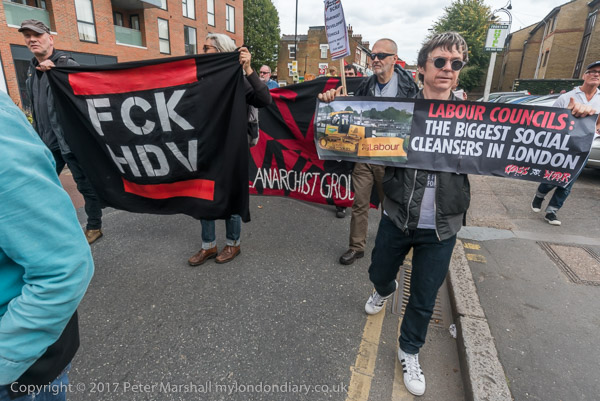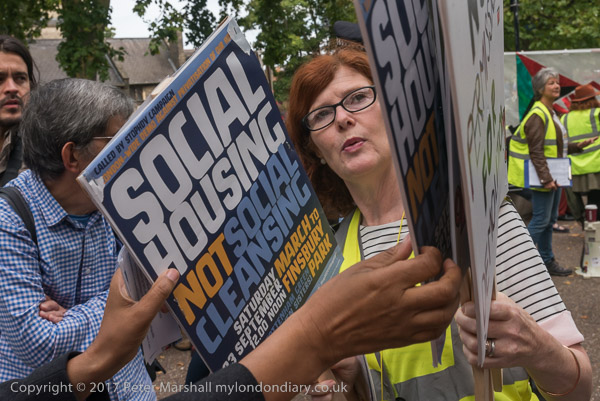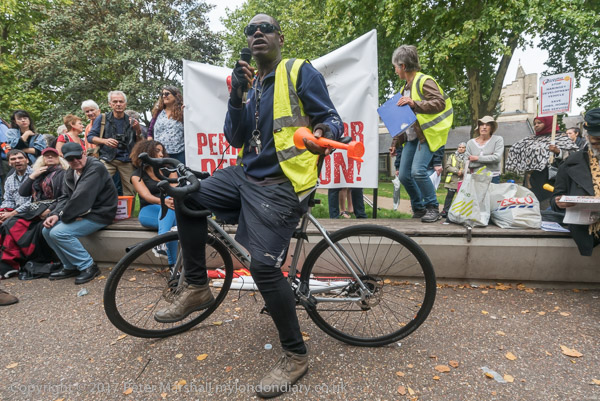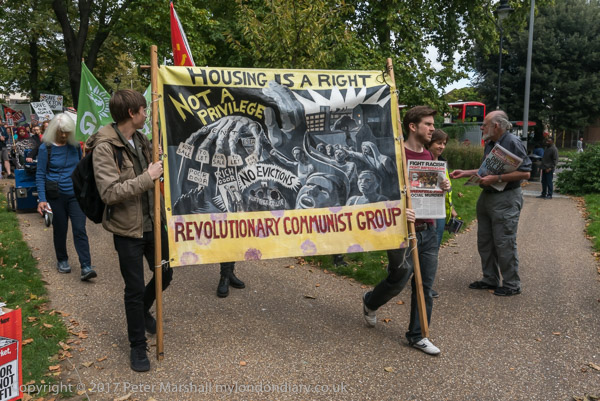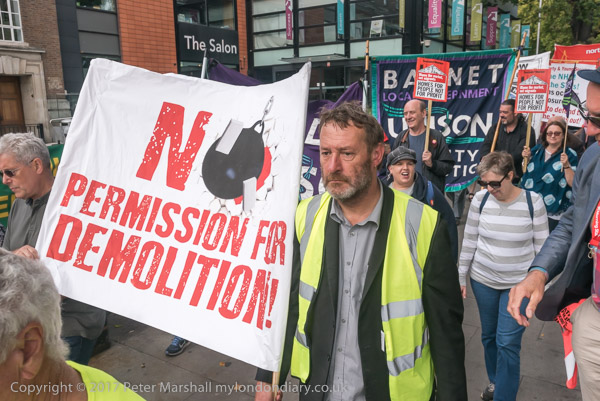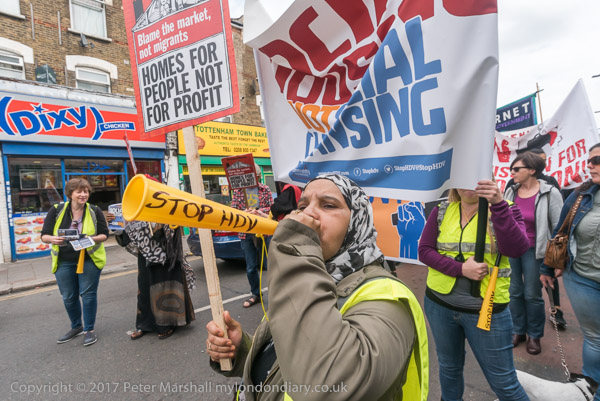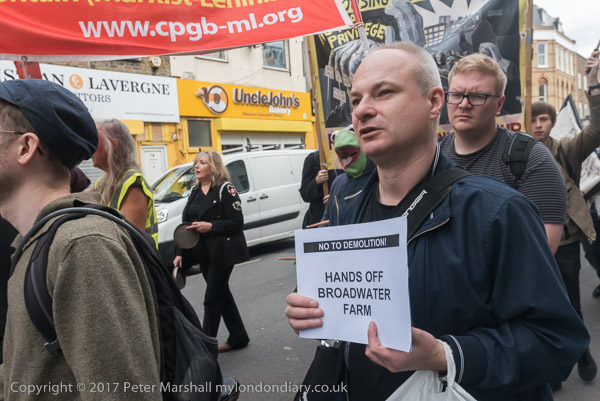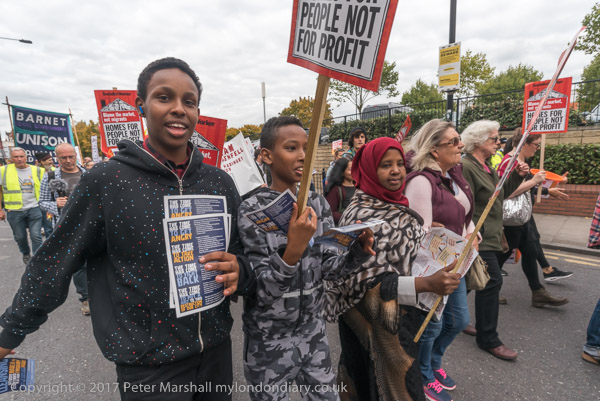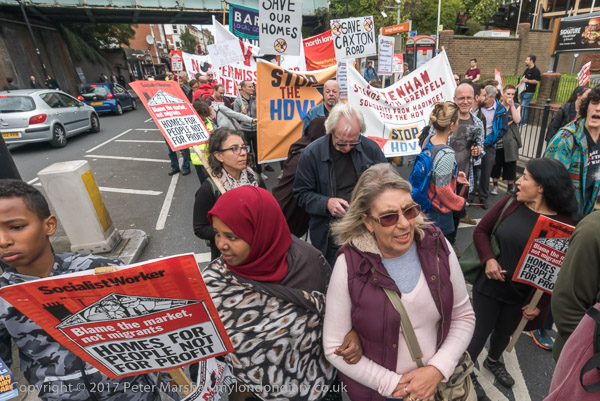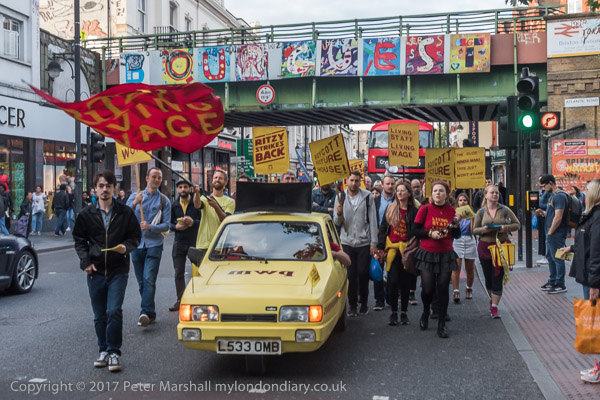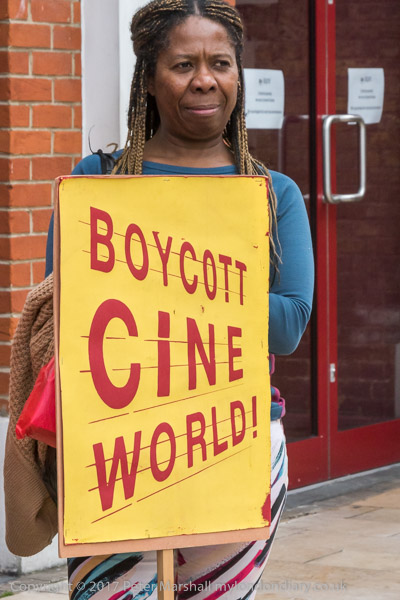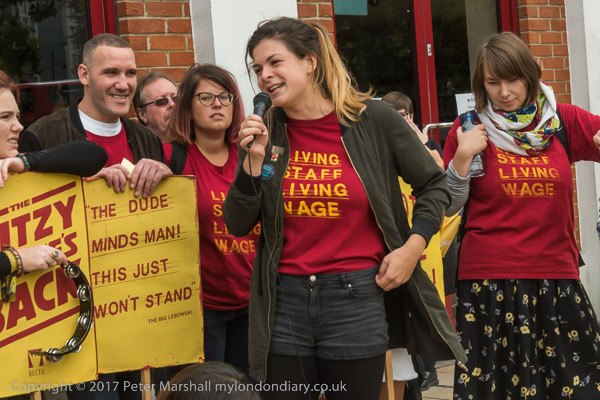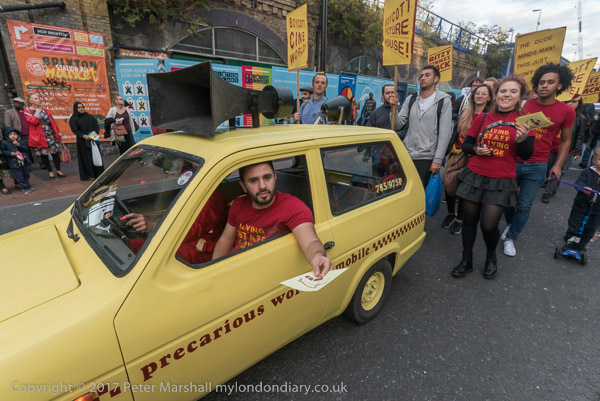Cinema Workers Strike, LSE against Homophobia: On Monday 6th November 2017 I photographed striking Picturehouse staff picketing the cinema in Shaftesbury Avenue before going on to the LSE where students, supporters and cleaners were protesting the homophobic abuse of one of the cleaners.
Picturehouse Strike for a Living Wage
Shaftesbury Avenue
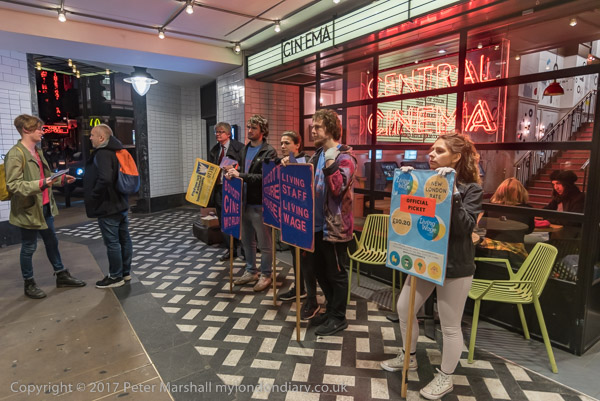
Staff working of Picturehouse cinemas in London had been campaigning for over a year to be paid a living wage, and on 6th November 2017 they were striking at Crouch End, Hackney, and East Dulwich Picturehouses and the Brixton Ritzy as well as at Picturehouse Central close to Piccadilly Circus.

It was Living Wage Week and the new London Living Wage of £10.20 per hour had been announced earlier that day. As I noted on My London Diary, while the cinema staff were living on poverty wages, “the post-tax profits of Cineworld, the parent company of Picturehouse were £93.8m last year in UK and Ireland and the CEO is paid £2.5m.”

In the short time I spent with the picket a number of people “decided not to cross the picket line. Some went to the cinema a short distance down the road instead.” The strikers were expecting more people to join the picket later when there would be more customers but I had to leave to cover a protest elsewhere.
Just a few more pictures at Picturehouse Strike for a Living Wage.
Protest against Homophobia in the LSE
London School of Economics
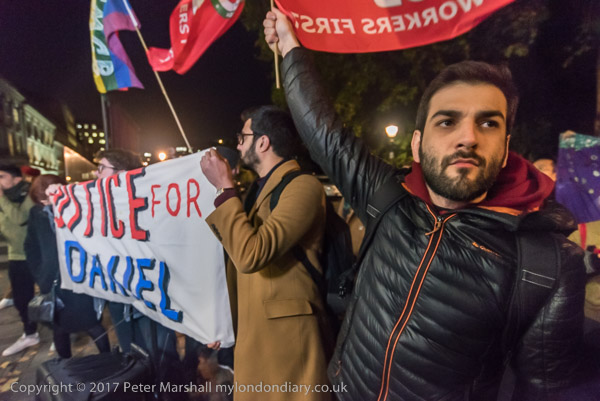
That evening the LSE were hosting a talk, “LGBT Rights: what next?” and students and others including some cleaners were protesting outside over the homophobic abuse which Daniel, one of the LSE cleaners, had been subjected to over the past 10 months.
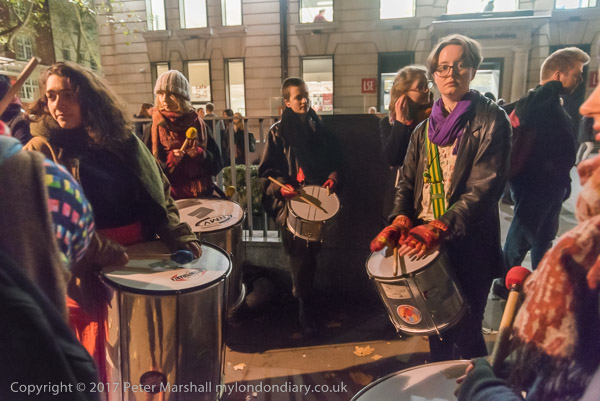
The cleaners who work at the LSE were then not employed by the LSE but the work had been outsourced to cleaning contractor Noonan. They were eventually brought back into direct employment after over a year of protests led by their union, United Voices of the World – I photographed most of these protests beginning with the launch of the campaign – on My London Diary.
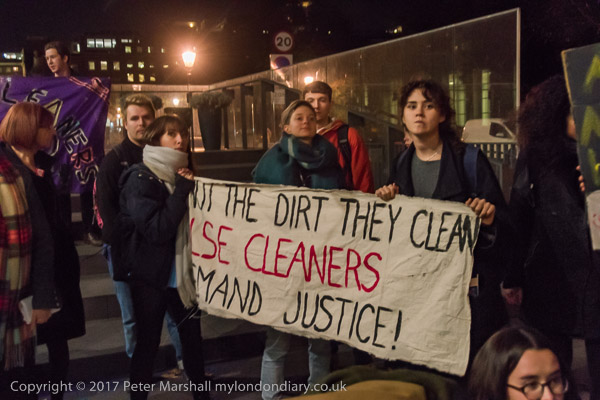
Daniel’s abuse came from his managers at Noonan. Complaints by him and his union had been brushed aside and he had been threatened with him disciplinary action for making some of them. Crowd-sourcing and support from the UVW enabled his case to go to an employment tribunal and in April 2018 it found he had been harassed on multiple occasions at the LSE merely for being homosexual.
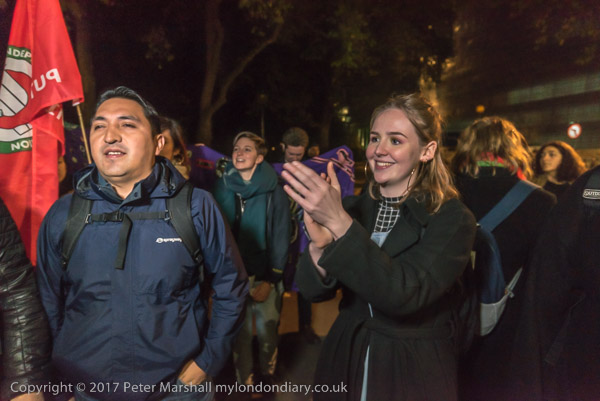
The tribunal heard that Daniel had been told “homosexuals were not human“, and that he should “sleep with women to cure his problem“, and that he was “a woman” for complaining about his treatment. It found that a culture existed at the LSE that made making such comments acceptable.
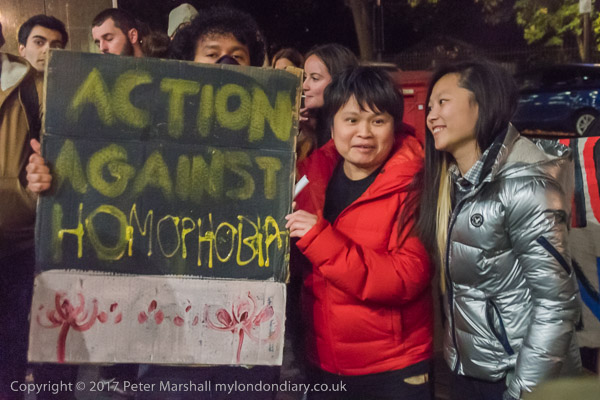
The tribunal vindicated the students accusation of hypocrisy against the LSE, which while hosting talks and boasting about its promotion of gay rights had refused to take any action when confronted by a clear case of anti-gay discrimination on its site. The protest pointed out that while Noonan employed the cleaners the LSE still had full control over their hiring and firing, and Noonan would have had to take action over the complaints if they had ordered them to do so.
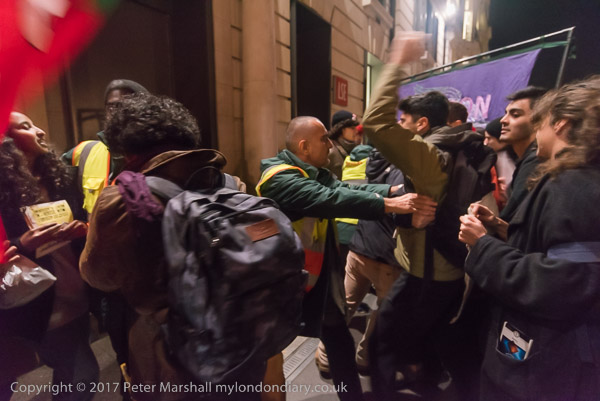
The protesters called on the LSE to apologise and commit to zero tolerance of homophobic and racist behaviour at all levels throughout the institution and to sack all homophobic bullies.
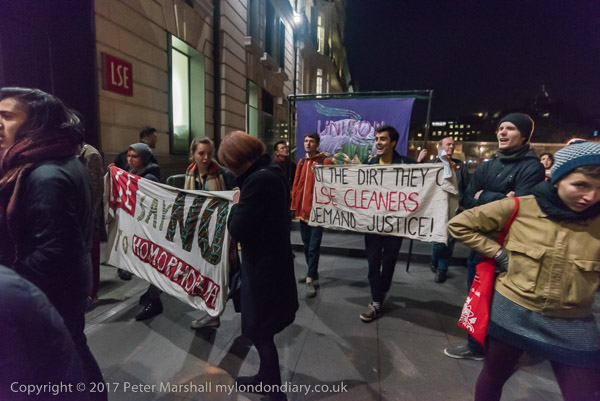
Security tried unsuccessfully to stop some protesters coming onto the site to protest, pushing the SOAS Unison banner into the road but were unable to prevent LSE students to come onto the site, though they they did a few who tried to enter the building.
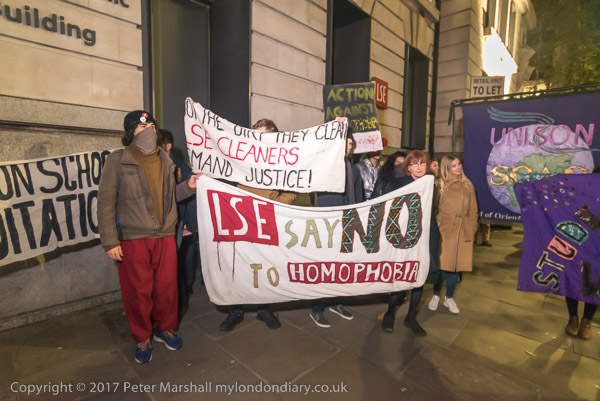
After some minutes of noisy protest the protesters marched around to the Kingsway entrance to protest there, then returned for further protests at the main entrance before moving off again to protest outside the New Academic Building.
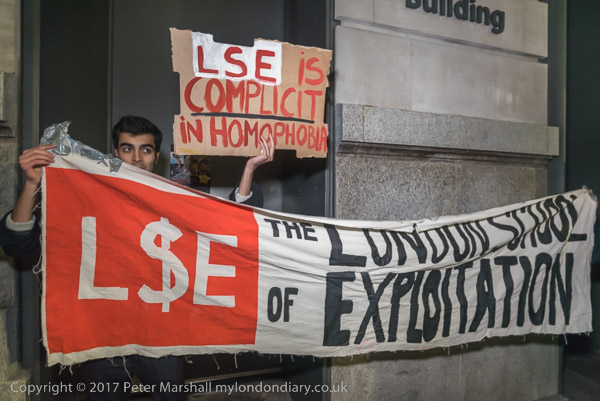
More at LSE against Homophobia.
Flickr – Facebook – My London Diary – Hull Photos – Lea Valley – Paris
London’s Industrial Heritage – London Photos
All photographs on this page are copyright © Peter Marshall.
Contact me to buy prints or licence to reproduce.
